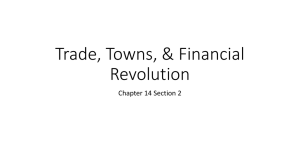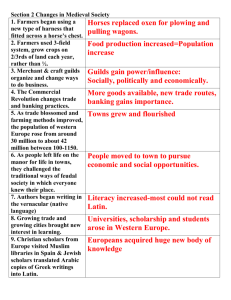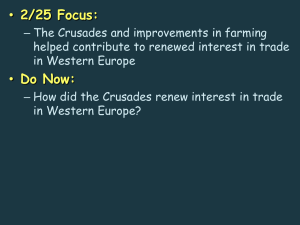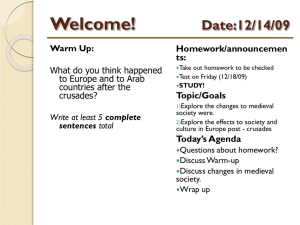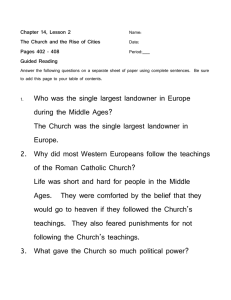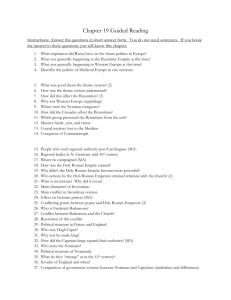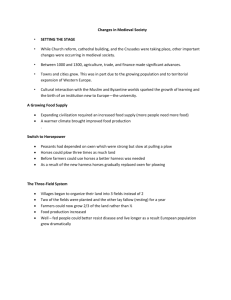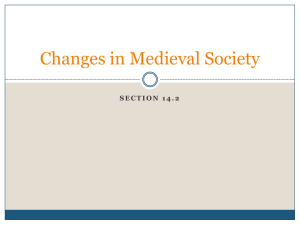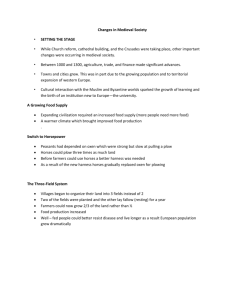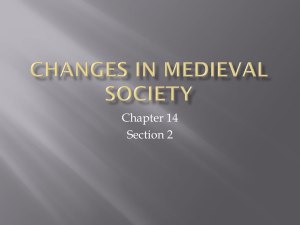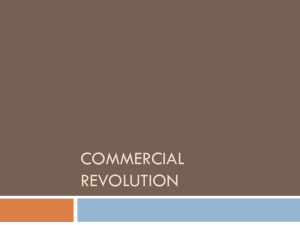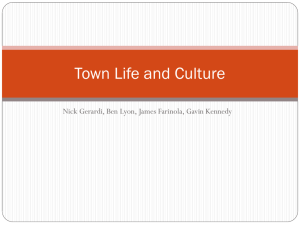14.2 – Changes in Medieval Society
advertisement
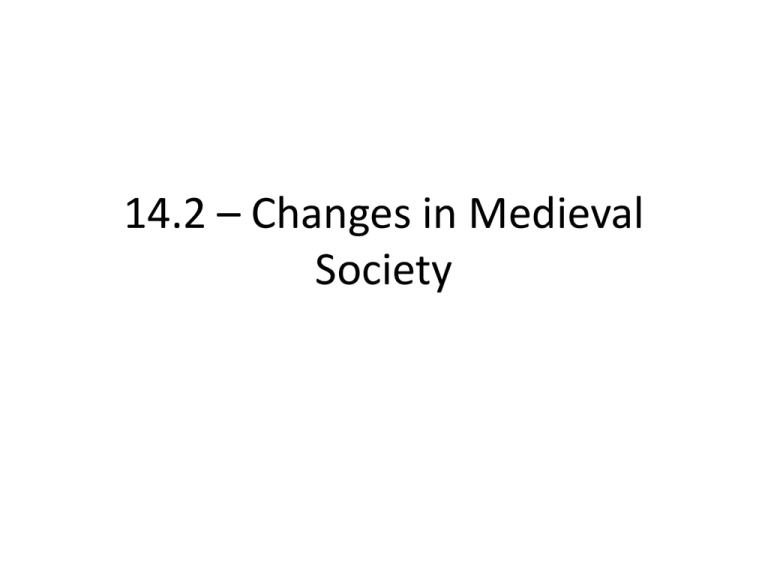
14.2 – Changes in Medieval Society Setting the Stage • Towns and cities are growing – Population explosion • Western Europe is expanding rapidly (territorially) • Growth in learning & the university – Cultural Diffusion with Muslims & Byzantines Growth in Farming • Revival exists b/c of advances in farming & warmer climate • New lands open to cultivation (Scandinavia) • Change: Horses plow field (3x faster than oxen) • New Tech: Cross harness – allows horse to plow • Forests cut down for farmland 3-Field System • 800: Villages begin to farm 3 fields – Farm 2 fields – 1 field fallow (resting) • Growth on 2/3s of land, instead of half • Result: Population Increase – Well-fed people – Children hold off disease, live longer Guilds • Guild: Organization of an occupation working to improve economic conditions • 1st Guilds – Merchants – Control Trade – Provide Security • Guilds set standards for work, pay, training, & conditions • Build great wealth & influence Commercial Revolution • Combo of expansion in trade, farming, & learning • Fairs set-up to conduct trade in towns • Trade: Cloth, salt, dyes, etc. • Markets end the need for the manor-system • Trade routes spread all across Europe = availability of foreign goods Banking & Society • Advances in trade & markets = need for banks & trading firms – Create exchange rates & lines of credit • Borrowing money @ interest (usury) was forbidden by the church – Softens over time • Change in Society: Big cities develop Urban Life • 1000-1150: Population rises by 12 million – Paris (60k) largest city • Trade becomes the lifeblood of towns & Europe • Problems – – – – Narrow streets Animals & their waste No sewers & bad conditions Fire hazards • Serfs run away to cities – “Town are makes you free” • Merchant class emerges (Burghers) Learning Revival • Contact with the Byzantines & Muslims rekindles learning • Rediscover the knowledge of the Greeks – Science, philosophy, law, math, etc • 1st universities develop Theology – Bachelor’s Degree (5-7yrs) – Master’s Degree (12yrs) Literature • Learning leads to development of a vernacular – Everyday language • Great works of literature are written – Dante Alighieri – The Divine Comedy – Geoffrey Chaucer – The Canterbury Tales • Books written in vernacular allowed most people to read them Medieval Philosophy • Philosophers push to improve upon the ideas of the Greeks – Find the logical truth & faith in the Bible • Saint Thomas Aquinas – religion could be proved by logic • Teachings combine religion with the work of Aristotle • Scholastics (schoolmen) – debate issues of the time – Develop democratic institutions
